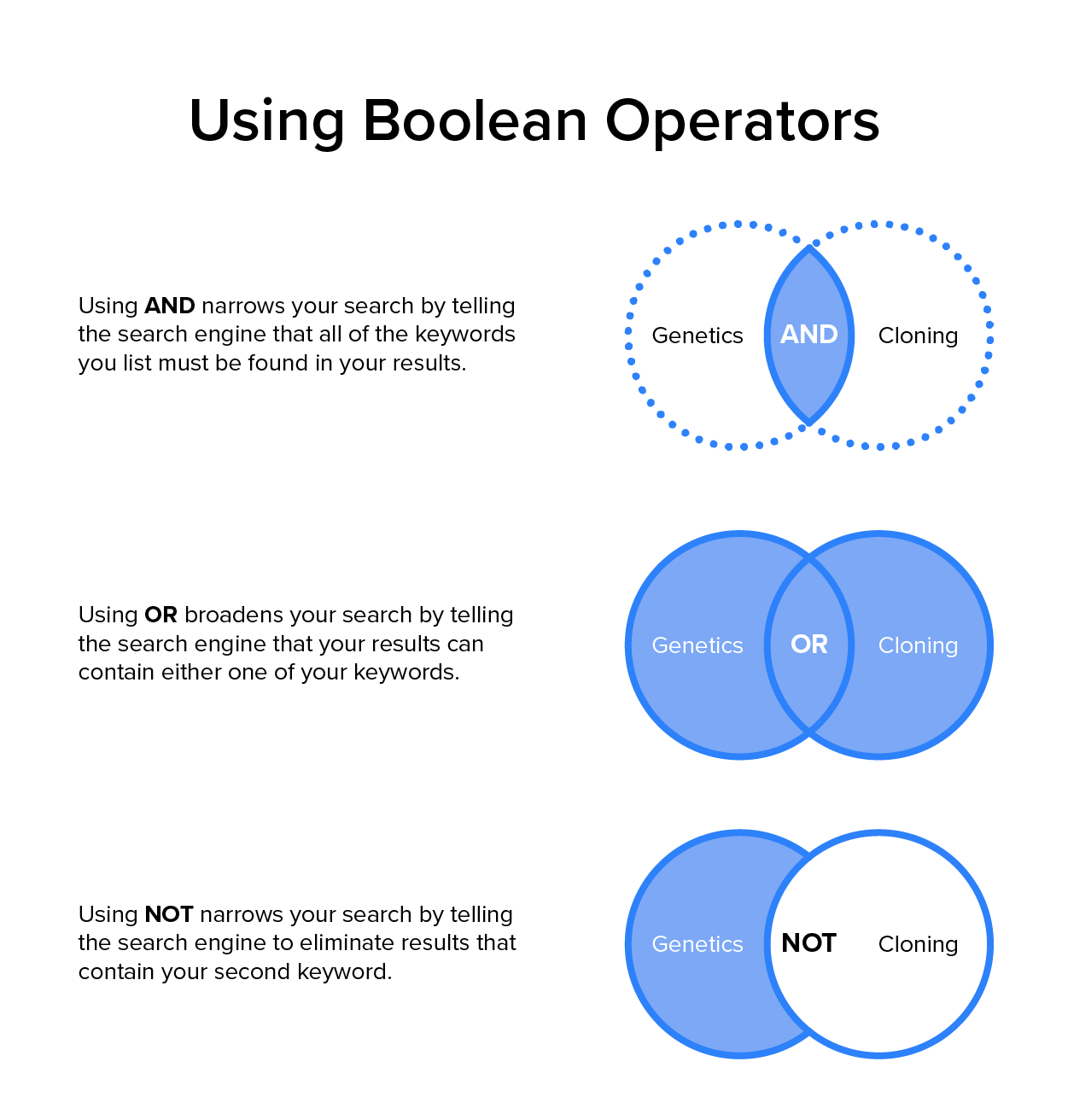Table of Contents |
As you gather research for your speech, you'll want to have a variety of sources from which to compile supporting evidence and facts. With the advent of digital archiving, social media, and open-source education, it's easier than ever before to find information on the internet.
The internet is like an endless virtual library where thousands of new sources of information are added every second of the day. There are many different types of information to be found across the vast expanse of the internet.
The internet is pervasive, easily accessible, and continually updated. It only makes sense to capitalize on this ever-evolving technology as a resource for your speech research. In addition to convenience and accessibility, the internet allows you to access resources you may not have the physical means to obtain previously.
The internet is also an excellent way to familiarize or orient yourself with an unfamiliar speech topic. While you might not be able to cite every informational source you find, using the internet in your research process is a fast way to get yourself familiar with the basics of your speech topic, thesis, or key supporting points and arguments.
EXAMPLE
You might not be able to just hop on a plane to Paris and see DaVinci's La Joconde (more commonly known as the Mona Lisa), but thanks to the internet, you can now browse the hundreds of works at Le Louvre right from the convenience of your laptop.When getting started with most internet research, the first thing you'll do is open up your internet browser and open to a search engine. While Google may dominate the search engine market, recognize that Bing, Yahoo!, Ask, and AOL Search round out the top five most popular search engines in the United States. Other popular search engines include Wolfram Alpha and Instagrok.com.
Using different search engines may yield different results, so don't limit yourself to just one search engine. Additionally, some search engines excel at certain types of information and searches more than others. Internet information, particularly of a certain quality or standard, can be organized in other ways besides word choice and prominence (as attended by global search engines).
Some information may also require further search skills to retrieve. A familiarity with midpoints like directories and "invisible" databases and an attentiveness to further types of organization may reveal the key to finding missing information.
EXAMPLE
A thesaurus may prove critical to connecting information organized under the business term "staff loyalty" to information addressing the preferred nursing term "personnel loyalty" (MeSH entry for Medline by the [US] National Library of Medicine).While each search engine may have a specific search query shorthand, almost all major search engines function by using Boolean operators such as the words and, or, and not to represent relationships between entities symbolically. These operators help you form your search query:

The most common source of reliable, credible information you will find on the internet is usually found in scholarly journals and databases. These academic, peer-reviewed collections provide you with extensive reports, case studies, articles, and research studies to help bolster your research process.
Most online scholarly journals are categorized by certain subjects, professions, and fields of study and allow you to seek out the most targeted information possible. Many online journals and databases will only let you preview an article abstract or summary, requiring a paid per-article or subscription fee to view the complete article.
However, many college and university libraries have arrangements so you don't have to pay to view articles. Check with your library to see if they can get you a copy of complete articles that you can't access online.
EXAMPLE
Popular online scholarly databases include:Several major encyclopedia publishers have online versions of their materials. Some charge an access fee to view full entries.
In 2001, Wikipedia sought to change this by creating an open-source encyclopedia edited and curated by the internet. With over 23 million articles, entries in Wikipedia are collaboratively written by volunteers around the globe. Because of this, the quality of writing may not make it the most reliable or accurate source of information.
However, if you're just looking to get a handle on basic ideas about your speech topic, Wikipedia is a great first source to check out. Also, make sure to click through and investigate a Wikipedia article's references list to find other, more high-quality and reliable sources of information on the same subject.
With over 48 hours of content uploaded to YouTube every minute, YouTube has compiled more videos across every two-week span (8 years of video per day) than the total number of years that motion pictures have existed (117 years in 2012).
Video can provide you with a rich, visual depth to your internet research, providing you with firsthand accounts, video tutorials and diaries, and citizen journalism.
Free books are also available to you outside the library. Project Gutenberg is an open-source collective of full texts now in the public domain. Google Books offers both full texts and partial previews of millions of books.
Because both of these resources index the content of each full text, they are searchable to find the exact content and information you need.
While many would dismiss the credibility and reliability of information garnered from social media sources, sites such as Twitter and Facebook can provide intrinsic value to your internet search.
Most mainstream journalism outlets can no longer keep up with social media's immediacy of information sharing, making some into a form of citizen journalism that provides real-time, first-person accounts of world events.
EXAMPLE
If you were preparing a speech about the Arab Spring or the 2012 presidential election, social media would be invaluable to your research tracking populist sentiment and eyewitness accounts in real-time reporting.Source: THIS TUTORIAL HAS BEEN ADAPTED FROM "BOUNDLESS COMMUNICATIONS" PROVIDED BY BOUNDLESS.COM. ACCESS FOR FREE AT oer commons. LICENSE: CREATIVE COMMONS ATTRIBUTION-SHAREALIKE 4.0 INTERNATIONAL.